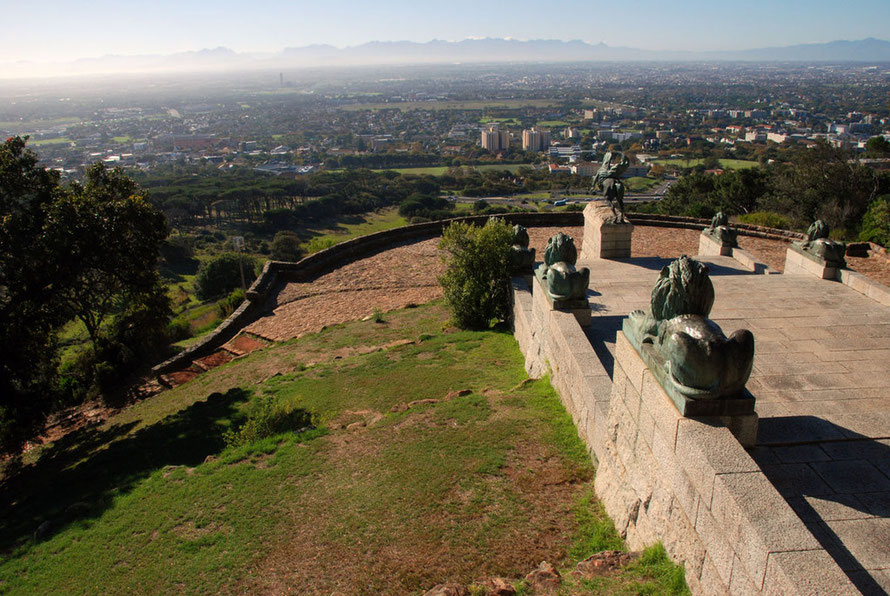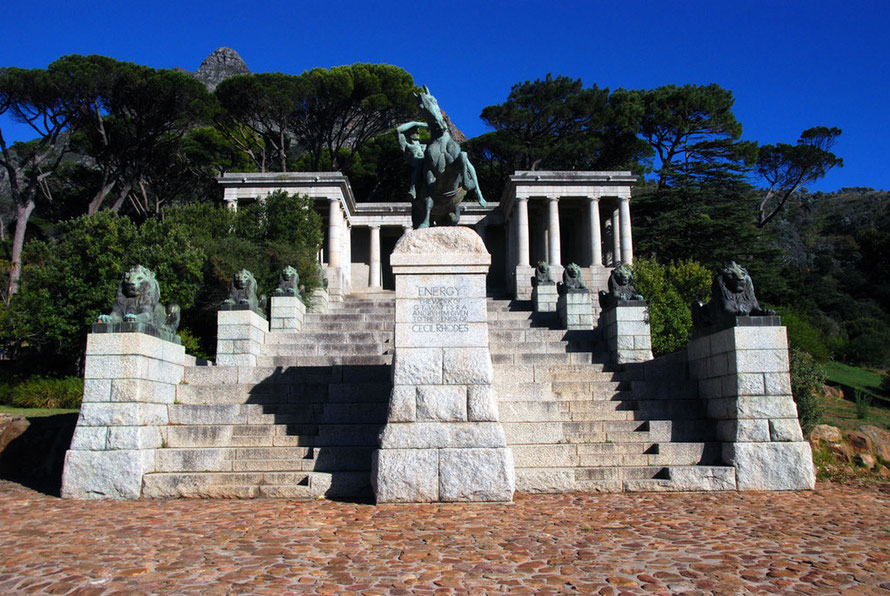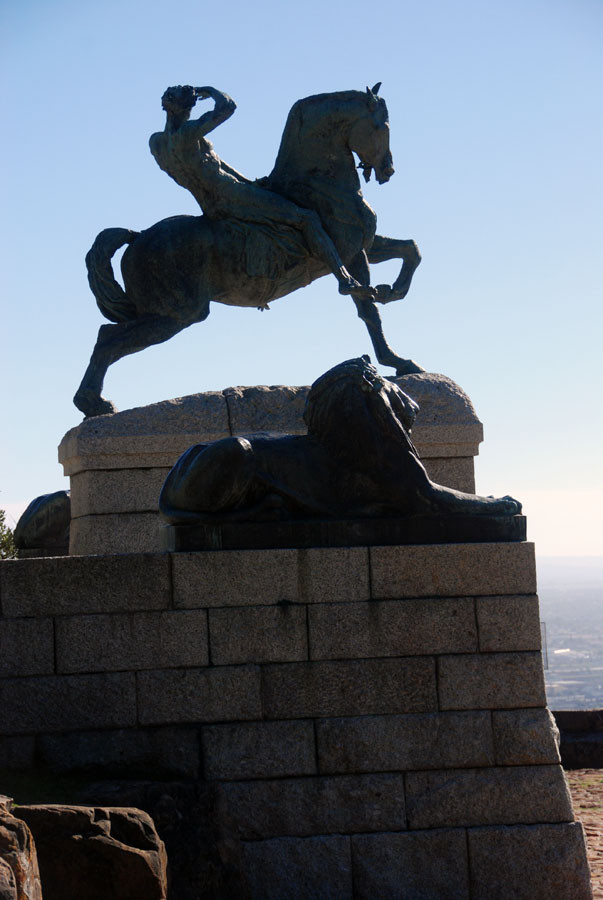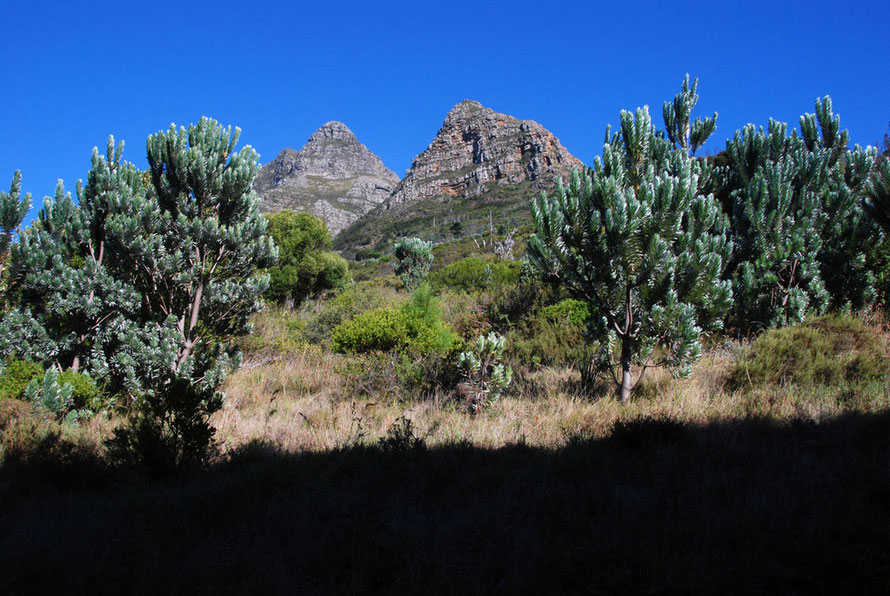Places V: The Rhodes Memorial

I drove up to the Rhodes Memorial, which stands beyond cool planted oak woods on the slopes of the Devil's Peak, one beautiful crystal clear morning. The views both up the slopes to the Devil's Peak and out over Cape Town's rich suburbs to the great expanse of the Cape Flats' townships and distant Hottentot-Holland mountains are fantastic.
The granite memorial itself, commemorated to the 'genius' of Cecil Rhodes, is an impressive tribute to a controversial figure in the history of Southern Africa. The monument is modelled after the temple at Pergamon in Ancient Greece and was completed in 1912. There are 49 steps - one for each year of Rhodes' life.
Rhodes became immensely rich and owned huge areas of the lower slopes of Table Mountain, most of which he gave to the nation on his death. Part of his estate now houses the University of Cape Town upper campus and the Kirstenbosch National Botanical Garden.

The course-grained granite used to make the memorial was quarried from the foot of Table Mountain. The contract for the quarrying of 26,000 cubic feet of granite was awarded to one Andrew James Clift of the Bellevue Quarry. Clift was a Cornishman born in the West Penwith fishing and quarrying village of Mousehole (pronounced Mow-zzle) in 1868. He emigrated, like many Cornish men and their families, during a great slump in the Cornish tin industry (see my page Gone Cape Town).
The nearby Higgo quarry was also owned by a Cornish family, this time from Penzance. John Higgo and wife Mary Ann arrived in South Africa on 2 February 1850, with a family of six sons and two daughters. Two more daughters were born in South Africa.
The company of J A Clift survives to this day in Paarl and continues the granite quarrying business established by Andrew James as well as owning three farms for the production of table grapes.
Sir Cecil John Rhodes (1853 – 1902) was a sickly child from a vicar's family in Bishop's Stortford in Hertfordshire. He was sent abroad aged 17 to join his brother in Natal in the hope that a change of climate would prvent him contracting TB. The cotton farm failed and John and his brother joined the diamond rush in Kimberley.
With the financial backing of N M Rothschild & Sons Rhodes succeeded in creating a monopoly position in the world diamond trade and founded the diamond company De Beers which today markets 40% of the world's rough diamonds. He also helped establish the South African fruit industry with his Rhodes Fruit Farms.

Rhodes was a committed and expansionist British imperialist who passionately believed in the supremacy of the Anglo-Saxon races. Through his growing wealth and financial backing he began to expand his business interests into South Eastern Africa, often paying for the colonial administration that went with it.
Rhodes set up his British South Africa Company (BSAC) and was soon controlling a vast swathe of Africa from the Limpopo river to the great lakes of Central Africa. The arrival of white gold prospectors who later turned farmers provoked two Matabele Wars (1893–94; 1896–97) which Rhodes won with his newly formed British South Africa Police.
By 1894 Rhodes controlled a territory - Zambesia - that covered modern day Zambia and Zimbabwe which he later renamed Rhodesia. He died aged 48 from heart disease (see Wikipedia: Cecil Rhodes).





